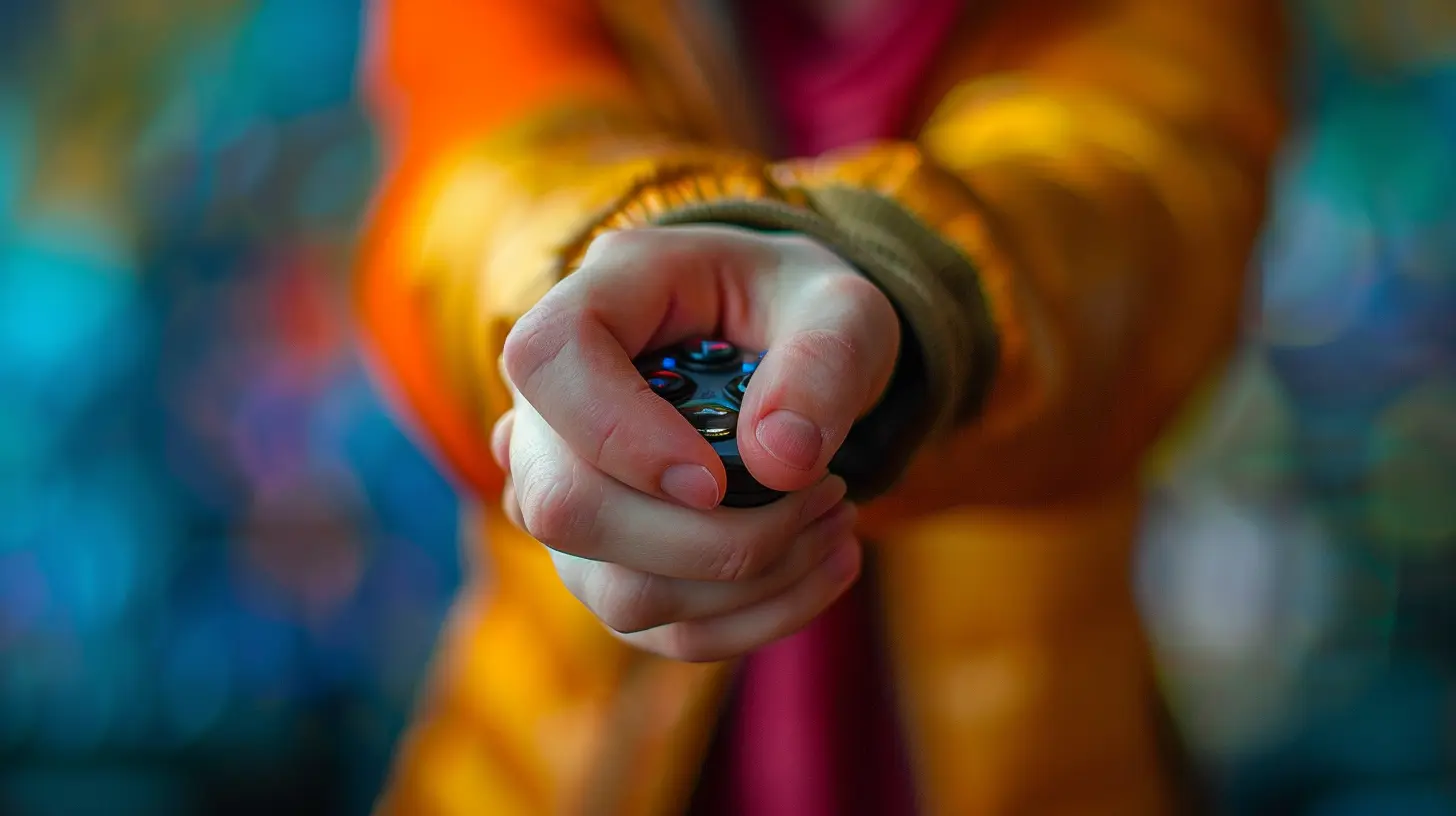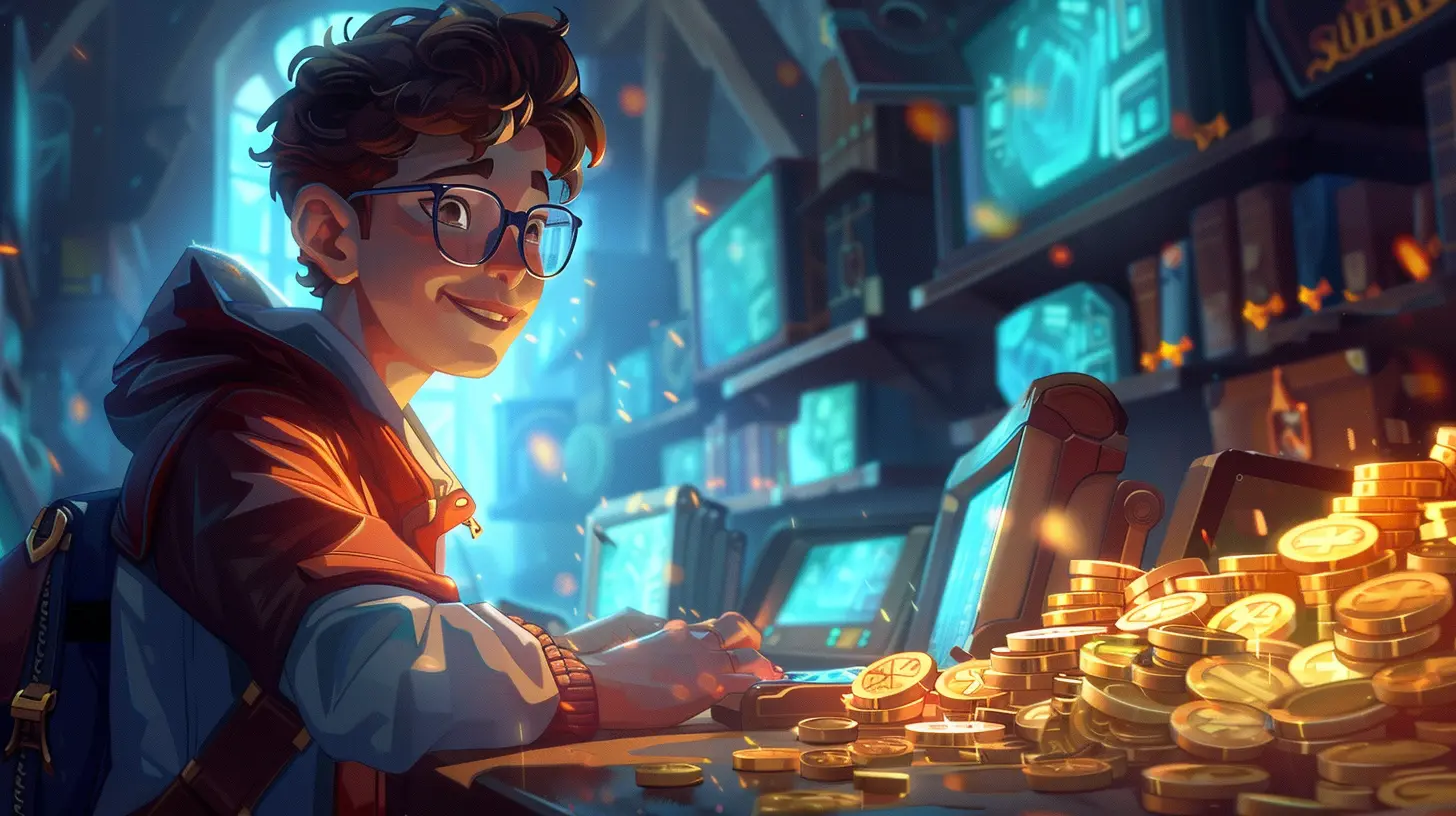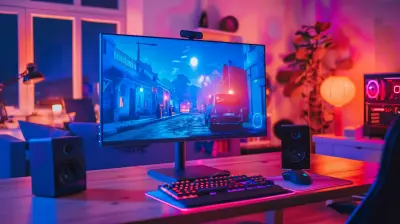How to Stop Overspending on Microtransactions: A Guide for Self-Control
21 October 2025
Are microtransactions slowly draining your wallet and testing your self-control? You’re not alone. We’ve all been there—scrolling through a game store, eyes sparkling at that shiny new skin, thinking, “It’s just a few bucks.” And before you know it, you’ve spent your grocery money on pixelated hats. Microtransactions are designed to be tempting, but that doesn’t mean we’re powerless against them. So, how can we take back control, strike a balance, and maybe even save some cash along the way?
In this guide, we’ll dive into actionable tips to help you stop overspending on microtransactions without sacrificing your enjoyment of the games you love. Spoiler alert: It’s all about self-awareness and a few clever strategies.
What Are Microtransactions and Why Are They So Hard to Resist?
Before we dive into the solutions, let’s address the elephant in the room. Microtransactions are small purchases made within games, usually offering bonus items, cosmetics, or other forms of content. The keyword here is small. They’re intentionally priced to feel insignificant—$0.99 here, $4.99 there. It’s pocket change, right? Except that it’s not.Game developers are no dummies. They’ve perfected the art of psychology. Microtransactions prey on our desire for instant gratification. That new weapon skin? It’ll make you feel cool right now. A loot box? It’s like pulling the lever on a slot machine—addictive and unpredictable. The next thing you know, your excitement turns into regret as you stare at your bank statement.
Recognizing the Problem: Are You Overspending?
First things first: How can you stop overspending if you don’t even know you’re doing it? Let’s figure out if this is an issue for you.Ask yourself:
- Do you buy items impulsively while gaming?
- Have small in-game purchases added up to more than you'd care to admit?
- Do you hide or feel ashamed of your spending habits?
- Would you rather not know how much you’ve spent?
If you answered “yes” to even one of these, keep reading. Awareness is key to solving the problem, and you’ve already taken the first step. 
Why Do We Overspend on Microtransactions?
Understanding why we overspend can help us nip the habit in the bud. Here are some common triggers:1. Fear of Missing Out (FOMO)
Limited-time offers create a sense of urgency. Developers know if they slap a “time-limited bundle” tag on an item, we’re more likely to buy it immediately. It’s like Black Friday shopping but digital—who wants to miss out?2. Emotional Spending
Had a bad day? That exclusive skin or character might feel like a treat you “deserve.” While gaming is a fantastic way to unwind, spending money to boost your mood can spiral out of control quickly.3. Peer Pressure
If your gaming crew all has the latest gear, it can feel like you’re falling behind. Nobody wants to be the odd one out who’s still rocking the default look!4. The “It’s Just a Few Bucks” Mentality
This is the sneakiest of them all. The small nature of microtransactions tricks you into thinking your purchases aren’t a big deal. But over time, those small amounts add up like grains of sand forming a desert.
How to Stop Overspending on Microtransactions
Alright, here’s the good stuff. You’re here because you want to improve your habits, and that’s awesome. Let’s get into some practical, actionable ways to stop yourself from overspending.1. Set a Monthly Gaming Budget
Yep, we’re starting with the big one—budgeting. Treat microtransaction spending the same way you’d treat any other expense. Decide how much you’re willing to spend on games each month and stick to it. Once you hit your limit, that’s it. No exceptions.Pro tip: Use prepaid cards or gift cards for your gaming purchases. It’s like setting a physical cap on your spending. When the funds are gone, so is your spending ability.
2. Disable In-Game Purchases
Many games let you turn off in-game purchases in the settings. Better yet, if you’re gaming on a smartphone, you can disable purchases outright through your device’s settings. This small roadblock can be surprisingly effective.Think of it like locking up the cookie jar—sure, you could go find the key, but the added inconvenience might be enough to make you pause and reconsider.
3. Track Your Spending
Knowledge is power. If you’re unsure how much you’ve already spent on microtransactions, dig into your purchase history. The number might surprise (or horrify) you, but confronting this reality is crucial.From there, start keeping a log of your purchases. Just the simple act of writing it down can make you feel more accountable and less likely to spend frivolously.
4. Sleep on It
Whenever you feel tempted to buy something, give it 24 hours. Literally. Walk away, think about it, and revisit your decision the next day. Most of the time, you’ll realize you don’t want or need that loot box as much as you thought.It’s like grocery shopping on an empty stomach—you’re less likely to grab useless stuff if your mind isn’t clouded by immediate cravings.
5. Evaluate Value vs. Cost
Ask yourself: Does this purchase truly enhance my gaming experience? Is it worth the price? For example, spending $10 on a new character for a game you’ll still be playing six months from now might make sense. But $5 on a random loot box full of duplicates? Hard pass.Think of it like buying clothes. You wouldn’t spend $100 on a pair of socks when that same amount could get you a high-quality jacket you’ll wear for years.
Build a Healthier Relationship with Gaming
Stopping overspending isn’t just about saying “no” to microtransactions—it’s also about enjoying games more mindfully. Here’s how you can do that:1. Focus on Gameplay, Not Cosmetics
Remind yourself why you fell in love with a game in the first place. Was it because you had the coolest skin in the lobby, or was it the thrill of clenching a hard-fought victory? Chances are, it’s the latter. Focus on the experience, not the extras.2. Rediscover Free-to-Play Content
Many games offer plenty of free cosmetic items or unlockables if you’re willing to put in the effort. Grinding for a sweet reward feels way more satisfying than simply buying it. Plus, it’s free—your wallet will thank you.3. Look for Alternatives
If a game leans too heavily on microtransactions, consider exploring other titles that don’t follow the same play-to-pay model. Indie games, for instance, often provide fantastic value without constantly asking for more money.Reinforce Good Habits
Breaking the microtransaction habit isn’t a one-time fix—it’s a continuous effort. Here are a few final tips to help you stay on track:- Reflect Regularly: Take a step back every so often to see how well you’re sticking to your budget and goals.
- Involve Friends: Let your gaming buddies know you’re trying to cut back. Who knows? They might join you in a mini spending detox.
- Reward Yourself Smartly: If you’ve managed to resist impulsive purchases for a month, treat yourself to something tangible outside of the game—a meal out, a new book, or even savings toward that dream keyboard.
Remember, progress over perfection. You’ll likely slip up here and there, and that’s okay. The key is not letting one or two purchases spiral into a spending freefall.
Conclusion
Microtransactions aren’t inherently evil. They can support developers and even enhance your gaming experience when approached responsibly. But they shouldn’t leave you broke or drowning in buyer’s remorse. By setting boundaries, tracking your spending, and focusing on what truly matters, you can enjoy your favorite games without breaking the bank.So, the next time that shiny in-game item comes calling, take a deep breath, pause, and remind yourself: You’re in control, not the game.
all images in this post were generated using AI tools
Category:
MicrotransactionsAuthor:

Avril McDowney
Discussion
rate this article
1 comments
Emmeline Wells
Microtransactions are a plague on gaming! Take back your wallet and your enjoyment. Prioritize value over vanity—invest your time and money in experiences, not digital trinkets. Stand firm!
October 21, 2025 at 3:41 AM

Avril McDowney
I completely agree! Focusing on meaningful experiences rather than microtransactions can enhance your enjoyment and help you save money. Prioritizing value is key!


